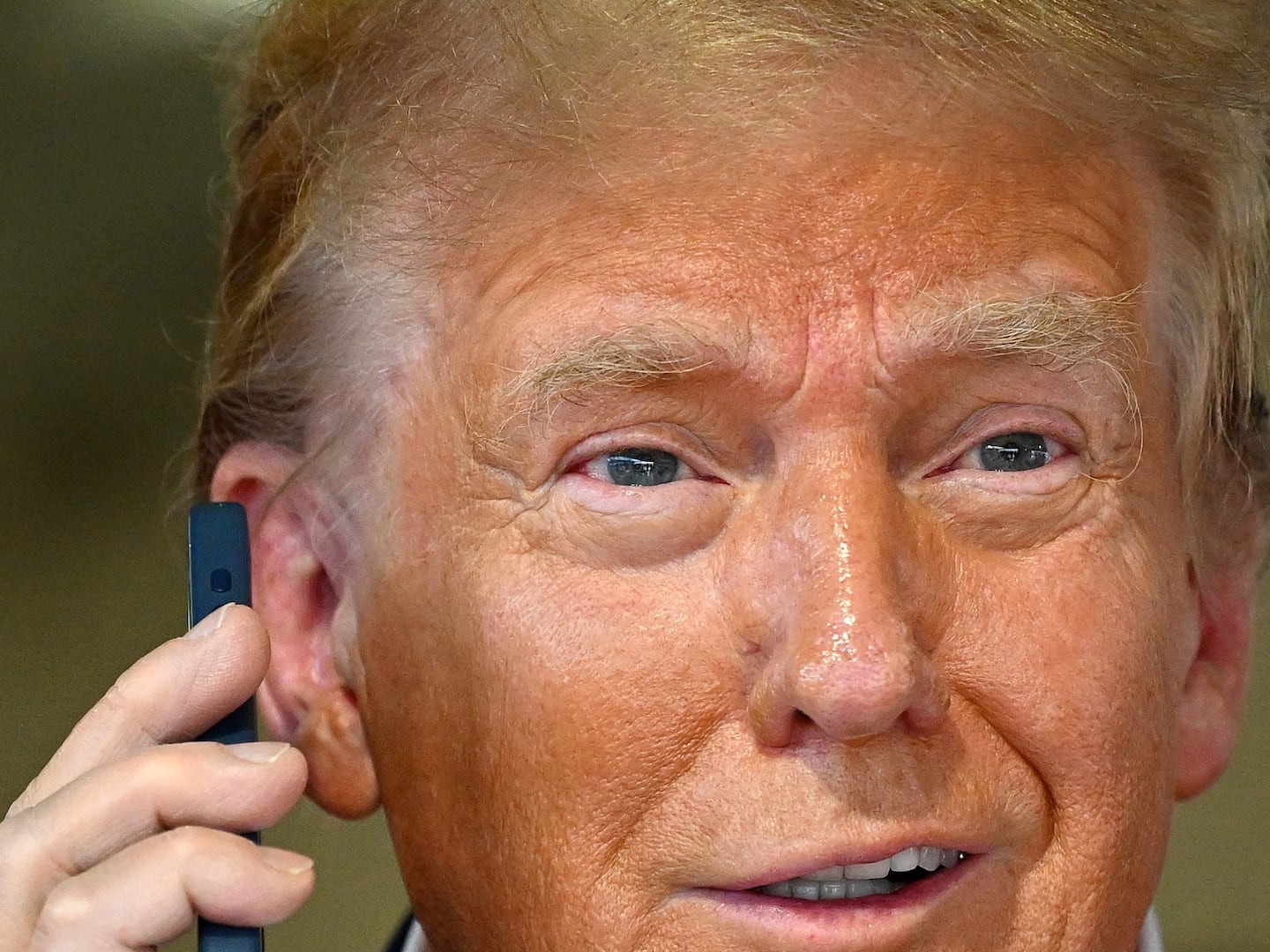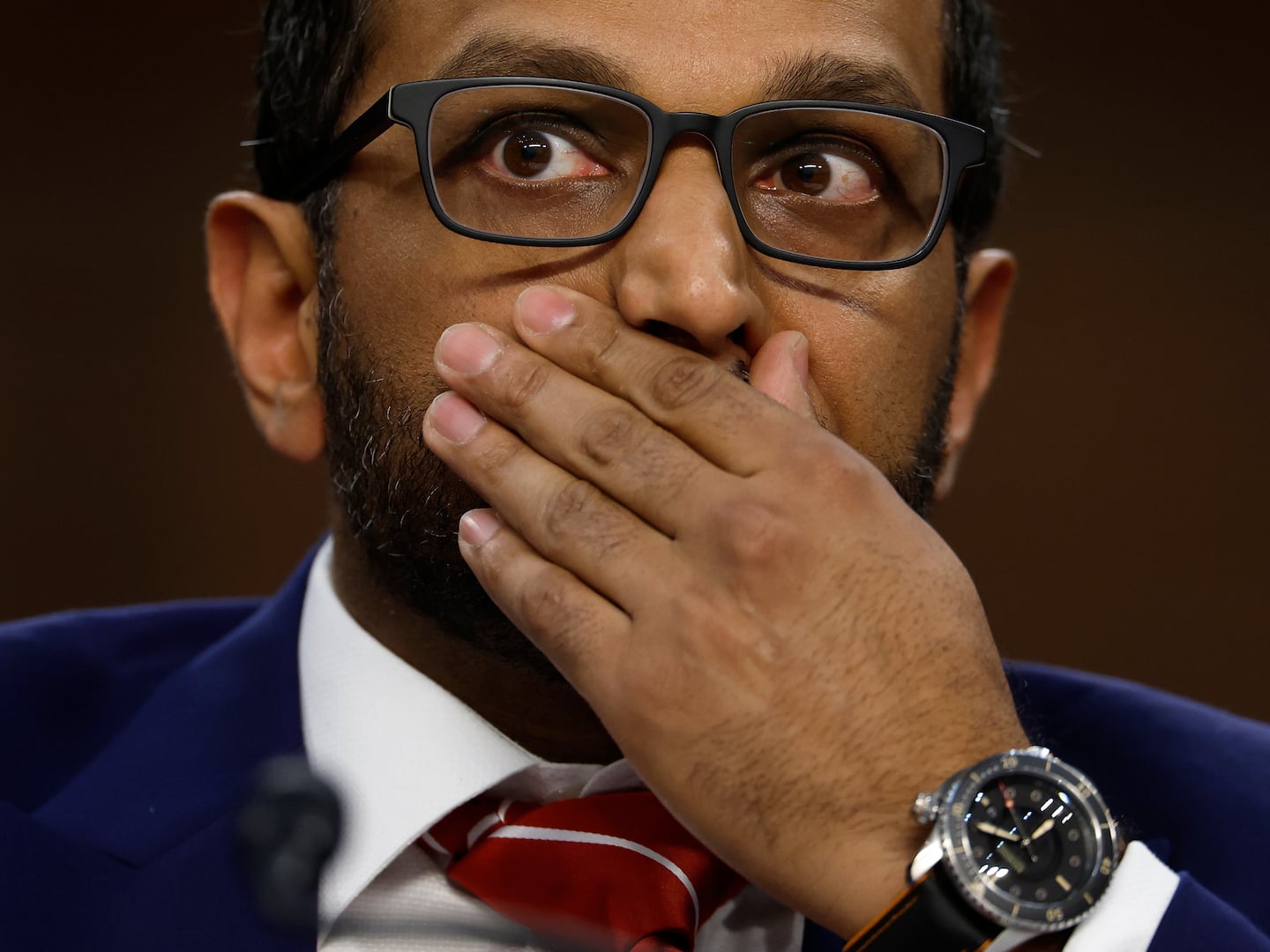After all the bad news for Republicans on Election Day, the GOP is just barely on track to meet its baseline goal of the midterms: recapturing control of the House of Representatives.
For House Republicans, the sweetness of returning to the majority after four years may outweigh the sour feelings from a poorer-than-expected performance. But that may not be enough to make Rep. Kevin McCarthy’s ascension to the speakership a reality.
The exact composition of a GOP majority could take weeks to determine, but it’s clear that whatever margin Republicans have, it won’t be a comfortable one.
If Republicans hold a narrow majority, the California Republican might need his entire conference to support him as speaker—a task made more difficult by the fact that a few members have already suggested they have no interest in a McCarthy speakership.
Even if Republicans secure and pad their majority in the coming days, McCarthy will face a problem that has bedeviled a generation of House GOP leaders: the House Freedom Caucus.
“Let’s just say that the margin is 10,” one source involved in leadership race strategy for House conservatives said Wednesday. “If McCarthy is stumbling in negotiations with the Freedom Caucus to give them all the stuff they want, the outer core of HFC probably starts to go to him and says, ‘Hey, it’s time to step aside.’ McCarthy probably starts getting that message from all corners and stands down before the vote.”
It didn’t take long for Freedom Caucus members to publicly brandish their knives. On Wednesday night, Rep. Bob Good (R-VA) told Axios that McCarthy has not “done anything to earn my vote” and said a number of GOP members “will support a challenge.”
What the Freedom Caucus wants in exchange for supporting McCarthy as speaker, this source said, wouldn’t be much of a surprise. “The demands are already spelled out,” they said, pointing to an HFC procedural document the group put out over the summer and a document that went out to incoming group members in October.
Among the demands are a number of proposals that seem obscure but could actually reinvent Congress: restoring the motion to vacate (the mechanism to remove a speaker); adopting a rule that would allow members to get a vote on any amendment if they get 10 percent of the GOP conference to co-sponsor the proposal (a change that would dramatically weaken the speaker’s stranglehold over legislative products); and formalizing a “majority of the majority” rule (essentially blocking any bill that isn’t supported by most of the GOP conference).
The group is also demanding representation on the powerful Rules Committee, which determines what amendments get floor votes, as well as greater influence over how Republicans choose who runs and sits on committees.
Those changes would give the hardline faction considerable power, and they would be tough for any leader to swallow. McCarthy may resist a number of the proposals and dare the Freedom Caucus to deny him the speakership. But two sources who spoke to The Daily Beast insisted the HFC would follow through on its threats—and that McCarthy’s hopes of appealing to former President Donald Trump to save him would be fruitless.
Trump endorsed McCarthy to become speaker on Election Day—just hours before results started rolling in—but his relationship with the GOP leader is somewhat strained despite McCarthy’s fealty.
New Freedom Caucus members are meeting in Washington on Thursday at the Conservative Partnership Institute, where former White House Chief of Staff Mark Meadows is a senior partner. Meadows is also a former Freedom Caucus chairman and less than friendly with McCarthy. While Meadows has his own complicated relationship with Trump, the meetings could be key to denying McCarthy the speakership—or helping him secure it.
For now, the immediate question is when Republicans might hold leadership elections. Currently, the closed-door elections are slated for Tuesday, but there are so many races in limbo that a delay seems plausible. Republicans might not even know if they have the majority by next Tuesday, with votes in California battleground seats expected to take days or even weeks to fully count.
After the speaker question, there’s a heated race for GOP whip—the would-be No. 3 position in a House majority. National Republican Congressional Committee Chairman Tom Emmer (R-MN), Republican Study Committee Chairman Jim Banks (R-IN), and current chief deputy whip Drew Ferguson (R-GA) are all running for the position, and all of them have arguments for and against their candidacy.
Emmer seemed like the favorite in an alternate reality where the NRCC ushered in a large GOP majority. But that didn’t happen.
Banks has strong ties to Trump and is a conservative with connections across the conference. But he’s also considered a political chameleon who will do or say anything to gain power.
And Ferguson, who at one point seemed to have the most tenuous path to the position, now could find a way to the spot. He’s popular among many colleagues and is part of a voting bloc with Southeastern Republicans. His relationship with McCarthy, however, is strained. While Ferguson is close with Minority Whip Steve Scalise, McCarthy reportedly kicked Ferguson out of attending leadership meetings in 2021.
One source close to the leadership race told The Daily Beast that Ferguson is “detested” by McCarthy. “He also has no relationship with conservatives, he is not a Freedom Caucus guy, he’s not of the right, he’s a Scalise guy,” this source said.
Ferguson’s team didn’t return The Daily Beast’s request for comment.
As The Daily Beast reported in October, the whip race has become a major flash point in Trumpworld.
All of these down-ballot leadership races could be thrown into disarray, however, if McCarthy can’t win the speakership. While the first step to the gavel is a relatively easy vote—a closed-door contest in which McCarthy would only need a majority of Republicans to support him—all GOP leadership positions could be in flux if McCarthy can’t win on the House floor in January.
On the Democratic side, the party’s unexpectedly good night may not necessarily upend the leadership machinations that have long been in the works. But it could make them a lot more interesting.
Anticipating a loss of the House majority in 2022, congressional insiders widely speculated that Speaker Nancy Pelosi (D-CA) would step down after a two-decade run as Democratic leader, with her two longtime lieutenants—Reps. Steny Hoyer (D-MD) and Jim Clyburn (D-SC)—expected to join her.
Within the caucus, the two clear contenders to succeed Pelosi are Rep. Hakeem Jeffries (D-NY), the fourth-ranking House Democrat, and Rep. Adam Schiff (D-CA), the House Intelligence Committee chairman. Both have quietly, and not so quietly, maneuvered to build up their clout in preparation for Pelosi’s departure.
In an interview with CNN’s Anderson Cooper on Monday, Pelosi said the brutal attack on her husband in their San Francisco home would affect whether she would remain as leader, leaving some wondering if that meant she now planned to leave or that she now planned to stay.
Concerns that Democrats would get wiped out in the midterms never materialized. And Pelosi may be able to maintain that it was, in part, her leadership that helped Democrats stave off major losses. She may suddenly have an argument for sticking around.
If that happened, it could throw succession plans into chaos. A Democratic minority leader only needs to win a majority of the caucus behind closed doors to secure the spot. Even if plenty of Democrats are frustrated by Pelosi’s continued presence in leadership, she may be able to win a vote to stay the top Democrat.
With slim margins, Democrats may not want to even temporarily leave Congress and help Republicans with their own vote problems. In that scenario, Pelosi, Hoyer, and Clyburn could all stick around—either in leadership or as rank-and-file members.
Conversely, Pelosi leaving would also set off another scramble, opening up the top leadership spot in the Democratic caucus for the first time since 2002 and giving younger generations of lawmakers a chance to pursue their pent-up dreams of power.
For now, Democrats are choosing to believe that Pelosi plans to retire.
One Democratic lawmaker, granted anonymity to speak candidly about caucus dynamics, said many are reading those Pelosi comments about the attack on her husband as a signal she is ready to leave. “And who could blame her?” the member said.
If that’s the case, Jeffries is “well-positioned” to clear the field, said the lawmaker, who predicted that Schiff—being “smart and risk-averse”—would probably stand down after seriously considering a run for the top job. Democrats are expected to hold their leadership elections after the Thanksgiving holiday.
Given that it could be weeks until the final House breakdown is set, Democrats are more or less in a holding pattern about the future leadership picture, said Rep. Mark Pocan (D-WI). “No one has said a thing,” he said. “I think we’re all trying to figure that out and no one knows the answer to it."
Some insiders feel the emerging likeliest scenario next year—a thin GOP majority with McCarthy under constant siege—would be an ideal opportunity for a new Democratic leader to cut their teeth. “If [Pelosi] retires, it’s the best possible scenario for us to break in a new team,” said one House aide. “The Republicans will fall apart constantly and make Hakeem or whoever look good.”
A GOP source had a similar thought, telling The Daily Beast that McCarthy’s problems may be less “becoming speaker as it will be staying speaker.”
“He’s gonna have to fork a lot over,” this source said.
—with reporting from Ursula Perano











